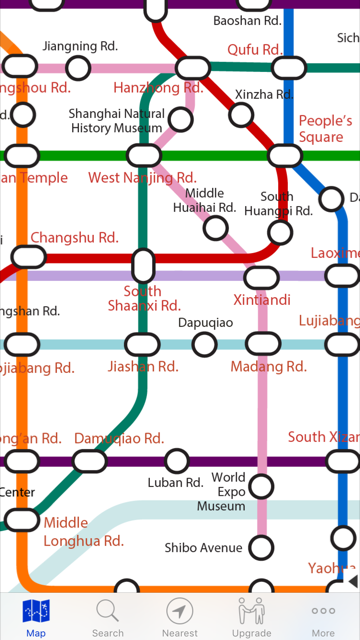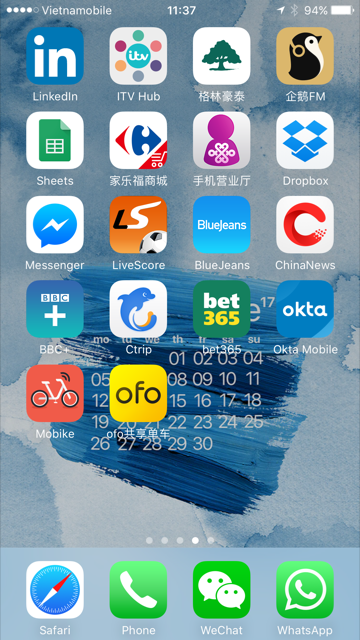I would add as a foreigner here in China that, of course, the smartphone is almost indispensable in western countries too, but there are some differences. One basic aspect is that westerners tend to see the make and model of phone as a key aspect - the battery life, the memory, the camera quality for sharing in global websites like Facebook, Instagram, Pinterest, etc. (we know the issues in the PRC). In China, increasingly it is a key App called WeChat that is most important as a platform with fast approaching a billion active users - Literally, if you are not on WeChat you are not "on". This reality explains why Apple high end smartphones are not the automatic purchase of choice and functional Android models do the job here.
Another aspect which I discussed with my American students recently was whether smartphone payment systems will take off in USA in the way they have here. They were cautious about the prospects as they said they prefer plastic bank card payments. A big reason is that most cards have member rewards linked to frequent user programs of airlines, hotel chains and rental car companies and they love to collect these. As far as I can see no loyalty schemes like that apply to WeChat and Ali-pay. Also, many like to pay with credit cards and leave cash earning interest before paying at end of month or spreading big payments. There is also the impression that virtual payment cards and memberships take more time to complete at cash registers in China - The contactless bank card is quicker.
I have to agree with this, as I find that just presenting my Starbucks Gold Card in China and handing over the exact purchase cost in rmb is processed faster than the customer in front who is fumbling to find their virtual membership card and then their Ali-pay app. However, the popularity of smartphone app payments is underpinned by the fact that many users use WeChat to make and receive payments from other people (including Red Packets) and of course need to use that money. Technically balances could be transferred to the linked China bank card, but why bother? Many of my Chinese friends do not like to carry cash at all, whereas as a foreigner who knows the dangers of relying completely on technology, I always carry emergency rmb funds on me.
OK we have discussed some of the issues, but let’s face it, smartphone access to services in the broadest sense has become indispensable in China. An interesting one for me is the western banking systems where mobile banking has long been in vogue. As a Brit, it was quite important to download the apps in the UK as one time the bank will want to send a UK local mobile number verification that it is you, but after that, one can use touch (fingerprint) ID to see payments, statements and transfer funds between different banks in UK instantly even though in China. That is impressive and I use three UK bank accounts that way while here.
Another useful area for foreigners is apps that provide travel info in China such as metro maps, train timetables and bus routes and general GPS related mapping. The smartphone is rapidly replacing the laptop for website access and flight and hotel bookings can easily be done this way. For me there are important business applications, going far beyond basic email, that are smartphone friendly such as okta - a secure gateway to MS office apps and customer management databases like salesforce. None of these indispensable apps for me require the WeChat platform but the ones many Chinese use are closely linked to it.

An essential first step for a foreigner is to open a local bank account and get a local SIM card - increasingly we find we won't get many phone calls as nearly everyone communicates in the WeChat message app - However, without the local number one cannot set up the local account or verify applications including joining services such as shared bike use.
So, what do locals do on smartphones? Watch videos on the move, order in food, do shopping, store and share photos in their moments, order taxis, rent shared bikes, text in WeChat a lot, join WeChat clubs to learn English if needed, and perhaps blog on China Daily, and the list goes on. I expect many new additions in the near future and I also expect smartphones will need much longer battery life and memory capacity as a result. Watch this space (if you can drag yourself away from WeChat for a minute!)

So as you can pay in cash that means that smart phones are NOT indispensable to life in China. QED.
What's your point? You can either pay with your mobile phone or cash at wet markets like you do anywhere else.
And if I don't own a mobile phone ? If I merely hand over 3 yuan in notes are coin to make such a simple transaction rather than it going through some digital phone banking stratosphere ?
I like the wechat app. shopping and talking by it !it's very convenience
They are so simple to use any nine year old can fiigure out how to use them. So my brother in law's nine year old is coming over to fix mine up for me.
It is the simplest in the world, as Wechat is configured in both Chinese and English.
Yes, the smart phone is indispensable here. But you forgot the prerequisite, even more indispensable -- a Chinese friend to read Hanzi and help you set everything up.










Comment